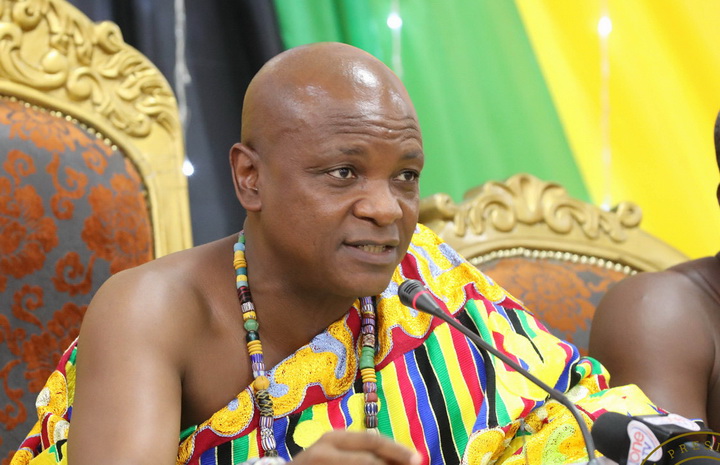
House of Chiefs advocates ‘No’ vote in referendum
The National House of Chiefs has joined the list of institutions and political parties that have kicked against proposals to allow political parties to participate in district-level elections.
It has, therefore, asked Ghanaians to vote “No” in the December 17, 2019 referendum which seeks to amend Article 55(3) of the Constitution to allow political parties to partake in local level elections.
But a Technical Advisor to the Ministry of Local Government and Rural Development, Dr Eric Oduro Osae, said the decision of the National House of Chiefs for a ‘No vote’ would not weigh on the voting pattern of chiefs on December 17.
House of Chiefs
In a statement signed and issued last Thursday by its President and Vice-President, Togbe Afede XIV and Daasebre Nana Kwebu Ewusi VII, respectively, the National House of Chiefs, the country’s highest body that unites all traditional rulers, chiefs and kings, said the decision was made based on the recommendations of the House’s legal committee.
“We strongly object to the proposal that membership of local assemblies should exclusively comprise representatives of political parties, as in the case of Parliament,” it said.
December referendum
The country will, on December 17, this year, head to the polls to vote in a referendum to amend Article 55 (3) of the Constitution to allow for political party participation in the district assembly and local government units elections.
Article 55 (3) of the 1992 Constitution, which is an entrenched provision, states: “Subject to the provisions of this article, a political party is free to participate in shaping the political will of the people, to disseminate information on political ideas, social and economic programmes of a national character and sponsor candidates for election to any public office other than the district assemblies or lower local government units.”
On the same day of the referendum, there will be the election of members of the district assemblies and unit committees.
So far, a number of groups and political parties, including the National Democratic Congress (NDC), have kicked against the introduction of partisanship in Ghana's local governance system.
House position
Explaining its decision in a six-point statement, the House said while it was aware that the decision of chief executives of districts could result in the coexistence of central and local governments controlled by different political parties, experience “clearly demonstrates that the culture of the winner takes all would prevail at the local level to the detriment of our united development endeavours.”
The House contended that the introduction of partisan politics into local government would be accompanied by unwholesome political culture and the corruption associated with party politics “which had already done a lot of harm to our society.”
“The incidence of exclusiveness, the unhealthy politicisation of all issues, the marginalisation of citizens who do not belong to the ruling party, and the exclusion of skilled manpower on partisan grounds, would be detrimental to development and good governance at the local level,” it said.
The statement further pointed out that currently, the 30 per cent government appointments to local assemblies had been totally vitiated by partisan politics, with the result that appointments were determined by party membership to the virtual exclusion of traditional authorities and other non-political groups.
“By every democratic principle, traditional authorities and other non-political groups must have a legitimate say in the use of their resources and the selection and location of development projects financed by such resources,” it said.
Additionally, the statement said effective decentralisation would be adversely affected by the control of local parties by the headquarters of national political parties.
“We want the citizenry to know that the referendum is meant to permit unbridled partisan politics into local government and so the merits of the proposed reform should be assessed on the basis. We strongly recommend its rejection by the citizens,” it said.
Technical Advisor rejects move
But Mr Oduro Osae said the position of the National House of Chiefs did not come to him as a surprise because the constitution barred chiefs from active participation in partisan politics and questioned whether that declaration by the chiefs amounted to active partisan participation.
“I am not surprised about their view because the impression then is that you are going to introduce partisan politics that will not give them the opportunity to put themselves up to be elected either as assembly members or chief executives,” he said.
“That notwithstanding, this is a constitutional matter, this is a civic responsibility of every Ghanaian and they are expected to express their views not according to the direction of any group of people or any person but their own conscience,” Dr Osae added.
